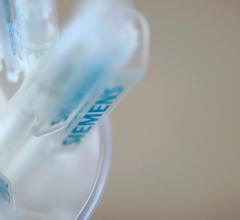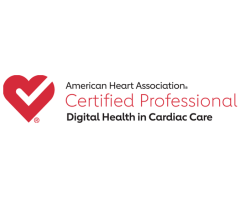
October 31, 2016 — SecurityScorecard, a security rating and continuous risk monitoring platform, released its 2016 Healthcare Industry Cybersecurity Report in October. The report is a comprehensive analysis exposing alarming cybersecurity vulnerabilities across 700 healthcare organizations including medical treatment facilities, health insurance agencies and healthcare manufacturing companies. Security breaches in this industry pose devastating consequences, according to the company, because they can render an entire system or network inoperable, creating a life or death situation that needs immediate attention.
Among all industries, healthcare ranks 15th out of 18 in Social Engineering, suggesting a security awareness problem among healthcare professionals, putting millions of patients at risk. The Verizon Data Breach Report ranks Social Engineering as the third most common cause for breaches, a number that is rising at the same rate as Hacking and Malware.
"The low Social Engineering scores among a multitude of healthcare organizations show that security awareness and employee training are likely not sufficient," said Alex Heid, chief research officer at SecurityScorecard. "Security is only as strong as the weakest link, and employees are often the lowest-hanging fruit when it comes to phishing, spear phishing and other social engineering attacks. For a hacker, it only takes one piece of information such as learning the email structure of an organization to exploit an employee into divulging sensitive information or providing an access point into that organization's network."
Another risk is the array of devices with wireless capabilities such as Internet of Things (IoT) devices, wireless medical devices and tablets, which have paved the way for medical advances benefiting hospitals and patients. However, their speedy delivery and implementation has resulted in subpar security setups.
"As long as these IoT devices are manufactured with poor security standards, the vulnerability doesn't only lie within the devices themselves, but they also pose a risk to any hospital, treatment center or individual using the device. If a connected device is hacked into, the device can be forced to malfunction or it can be used as a pathway to reach an organization's primary network," continued Heid.
Among the report's key findings are:
- Over 75 percent of the entire healthcare industry has been infected with malware over the last year;
- Ninety-six percent of all ransomware targeted medical treatment centers;
- Healthcare manufacturing nearly reaches a 90 percent malware infection rate;
- Sixty-three percent of the 27 biggest U.S. hospitals have a C or lower in Patching Cadence, which measures an organization's ability to implement security software patches in a timely fashion;
- Healthcare has the fifth highest count of ransomware among all industries;
- Over 50 percent of the healthcare industry has a Network Security score of a C or lower; and
- Past-breached healthcare companies still have 242 percent as many low scores in Social Engineering compared to non-breached companies
Ransomware and breaches are affecting the healthcare industry at an increasingly alarming rate, according to the report, with 22 major public breaches occurring since August 2015. Earlier this year, Hollywood Presbyterian Medical Center paid $17,000 as a result of ransomware after losing access to patient records for 10 days. In March 2016, 21st Century Oncology struggling with DNS Health, Network Security and Patching Cadence suffered a data breach that led to a loss of 2.2M patient records and a $57M class-action lawsuit. Overall, breached healthcare companies still struggle with security post-breach, according to the report.
Related Healthcare Cybersecurity Content:
Raising the Bar for Medical Device Cyber Security
Market Report Calls Into Question St. Jude Medical EP Device Safety, Cybersecurity
FDA Harshly Criticizes Abbott, St. Jude For Failure to Address EP Device Safety
Healthcare 2015 Data Breaches - Why the Cloud Is Not Responsible
HIMSS: Two-Thirds of Healthcare Organizations Experienced a Recent, Significant Security Incident
How You Should – and Should Not – Be Sharing Medical Information With Patients
How Can Doctors Practice Better Security?
For more information: www.securityscorecard.com


 November 14, 2025
November 14, 2025 









